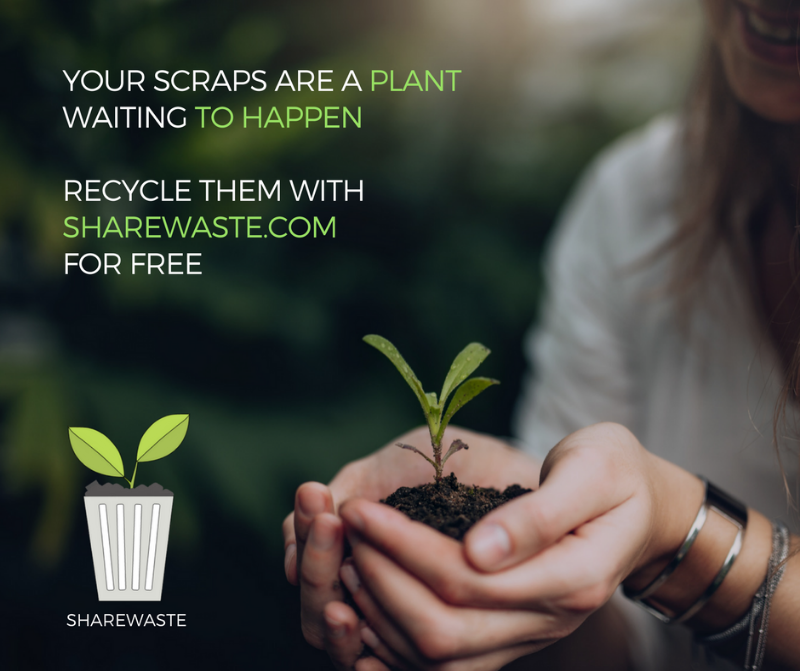Why Compost is Important with ShareWaste

Tomas Brambora and Eliska Bramborova love compost so much they created a community platform to make sure more of us can reduce our food waste and turn it into compost! Based in Sydney, ShareWaste is an international platform that connects people to each other to help save more organic waste from landfill, and make new soil. “We match donors with food scraps with nearby ShareWaste hosts who can recycle them” explains Eliska (Eli). A host can be anybody – a single person with a worm farm or a large community garden keeping chickens and with several compost bins. Anyone who can recycle excess green waste can become a ShareWaste host.
Starting at the end of 2016, the couple are originally from Prague and their mission is to help people see their waste as a fantastic resource, as well as getting to know your neighbours at the same time. Eli has worked in education for more than 10 years and Tom is a software engineer. The couple moved to an apartment and wanted to do something about the huge amount of organic waste that kept piling up in their tiny garbage bin. “We didn’t have space for a compost bin but we had the idea we could donate our kitchen scraps to somebody in the neighbourhood who would recycle them and use them in their garden” says Eli. So they looked around and found someone to take their scraps. Tom then wrote the first version of ShareWaste and they started inviting other people to join them and connect with each other. A year and a half later, they are about to surpass the magic number of 10,000 registered members.
Eli and Tom’s tips on being more sustainable at home
The couple’s own philosophy on being more sustainable is that less is often more and that we should try to leave things in better shape than they were in when you got them.
- Don’t start by throwing away all your plastic containers or other things and buying new more eco-friendly ones from a store.
- Use what you already have as long as you can.
- Borrow and share instead of buying and buy access to things instead of buying things.
- A membership to a toy library is much better than buying new toys every few months simply because children grow and have different needs at every developmental stage.
“We found that often changes with the biggest impact are the easiest ones to make. And sometimes it’s just about using common sense. Like, what do you think has a bigger impact – wondering about how to find a substitute for a rubber hair tie you occasionally use, or encouraging a coffee-loving friend to get a reusable cup?” ask Eli.
 Why is Composting Important?
Why is Composting Important?
Composting and worm-farming are the easiest ways we can close the food loop and return the nutrients back to the soil without making landfill and producing methane. Unlike recycling of other materials, such as plastic, metal or glass, some form of composting can be done in any household. We think everyone should be doing some type of composting. There is no commercial facility needed and it is cheaper than any other type of waste recycling.
Here are some of our food waste reduction tips:
- Make a shopping list at home and stick to it when in the store
- Avoid special offers, such as “Buy 3 for the price of 2” – you came to buy just one so what would you do with 3?!
- If you regularly end up with mouldy veggies at the bottom of your fridge or 10 packages of crackers no one in your family really eats, something’s wrong and it’s time to sit down, do a food inventory and find ways to change your habits to avoid food waste. You can also try the Swag Bags to help keep your fresh produce fresh for longer.
You can follow through here to sign up to the ShareWaste programme as a host or find someone to take your green waste – what a brilliant idea!
Helen

 Why is Composting Important?
Why is Composting Important?
[…] to the landfill bin. Most of our waste goes to either the recycling bin, the RedCycle bins, our own compost bins, or the green waste bin for the council collection. We also keep glass jars and reuse them […]